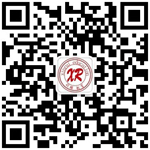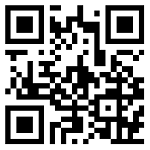提醒:点这里加小编微信(领取免费资料、获取最新资讯、解决考教师一切疑问!)
(23)arrive in/at、reach、get to的用法:arrive是不及物动词,到达具体地点时后面加介词at,到达一个大的地方(国家、城市)时后面加介词in,arrive后面可以直接跟地点副词here/there/home等;get表示“到达”时是不及物动词,涉及地点(无论大小)时后面加to,get后面可以直接跟地点副词here等;reach是及物动词,后面直接跟地点名词。如:He arrived in San Francisco last Sunday. (上个星期天他抵达旧金山)/ How did you get there in the night? (你是怎样在夜间到达那里的?)/ We hurried all the way and reached the station just five minutes before the train left. (我们一路狂奔在火车启动前5分钟到达车站)
(24)be made of、be made from、be made into、be made in、be made by、be made for的区别:be made of指从制成品中可以看得出原材料,而be made from则指从制成品中看不出原材料,口语中都可以换成be made out of。 be made into表示“被制成……”,be made in表达被制造的地点,be made by表达制造的人,be made for表达被制造的目的。如:This kind of paper is made from bamboo. (这种纸是由竹子生产的)/ The desk is made of wood and metal. (桌子是铁和木头打的)/ A lot of paper has been made into paper birds. (许多纸被折叠成了小鸟)/ Computers are made in these cities. (计算机是在这几个城市制造的)/ This kite was made by Uncle Wang. (这个风筝是王叔叔做的)/ A big bag was made for me to hold my waste things.(一只大包做好了让我装废物)
(25)be used for、be used to、used to、get used to的区别:be used for + 名词/代词或动名词, be used to + 动词原形,表示两个短语意思相近,表示“用于…”。 used to + 动词原形,表示“过去常常”,否定式可以是“didn’t use to”也可以是“usedn’t to”;get/be used to + 动名词,表示“习惯于….”。如:A knife can be used for cutting things.(刀可以用来割东西)/ A knife can be used to cut things.(刀可以用来割东西)/ He used to borrow novels from the library when he was at school. (他上学时常常在图书馆借书)/ He is used to getting up early in the morning. (他习惯早起)
(26)beat,win与lose: beat (打败),后面跟“人”,而win(赢得),后面跟“比赛、竞赛”等。如:Who won at last? (最后谁赢了?)/ Class Three beat us 5-0. (三班以5∶0打败了我们)/ I am sure to win the match. (我一定能赢得比赛)
而lose则表示“输了”,常用句型:lose sth. to sb. 如:Unluckily we lost the match to Class Three. (不幸的是我们比赛输给了三班)
(27)grow、plant、keep的区别:plant着重讲“栽、种植”这个动作,grow则指种植以后的“栽培”、“管理”,而keep则主要指“喂养”、“赡养”一个人或者动物。如 :He grew vegetables in his garden. (他在园子里种菜)/ I planted ten trees last year, but four of them died. (去年我栽了10棵树,但是死了4棵)/ Old women enjoy keeping cats or dogs to kill the time. (老年的妇女喜欢养猫养狗打发时间)
提醒:点这里加小编微信(领取免费资料、获取最新资讯、解决考教师一切疑问!)









